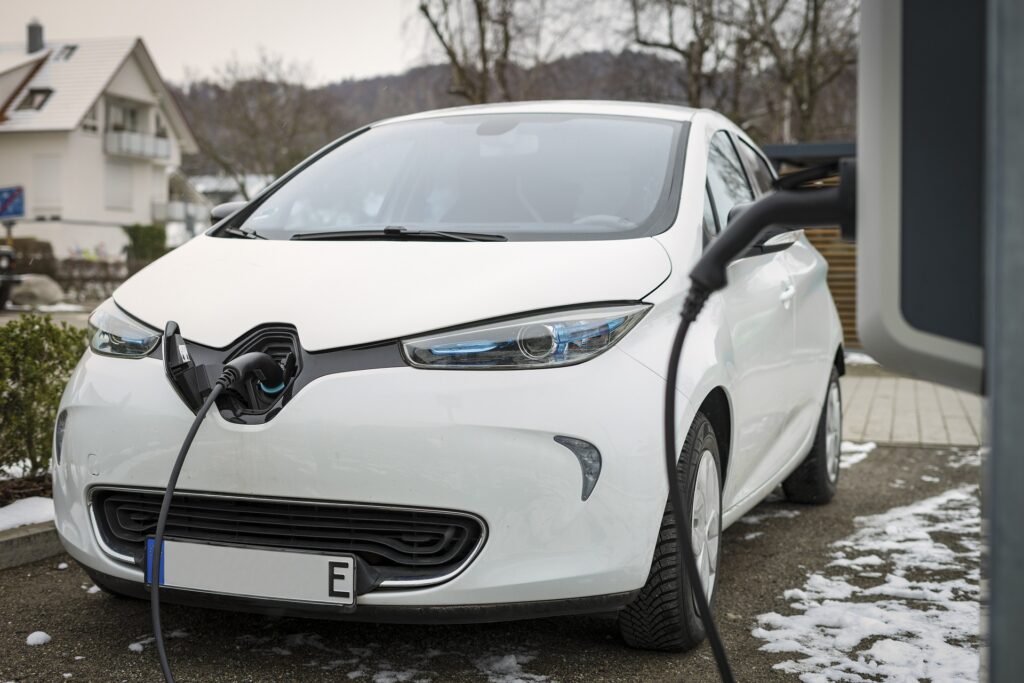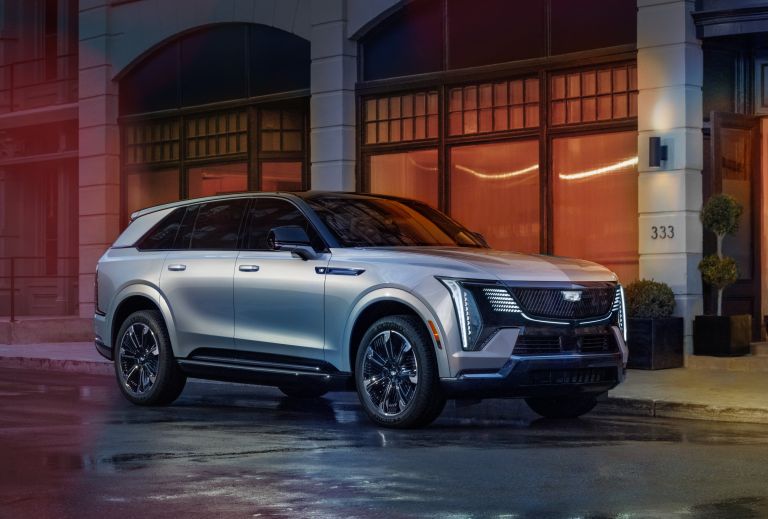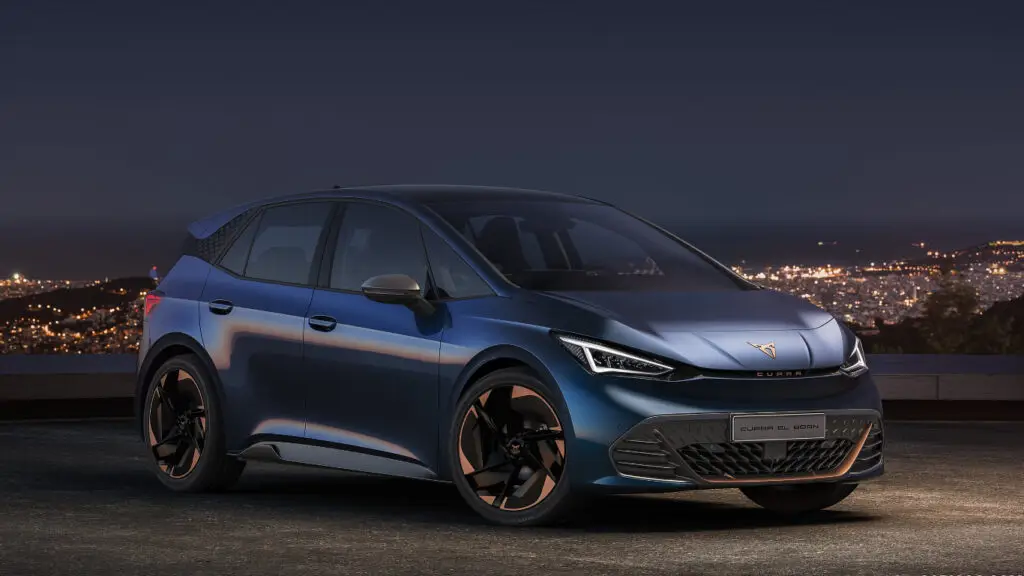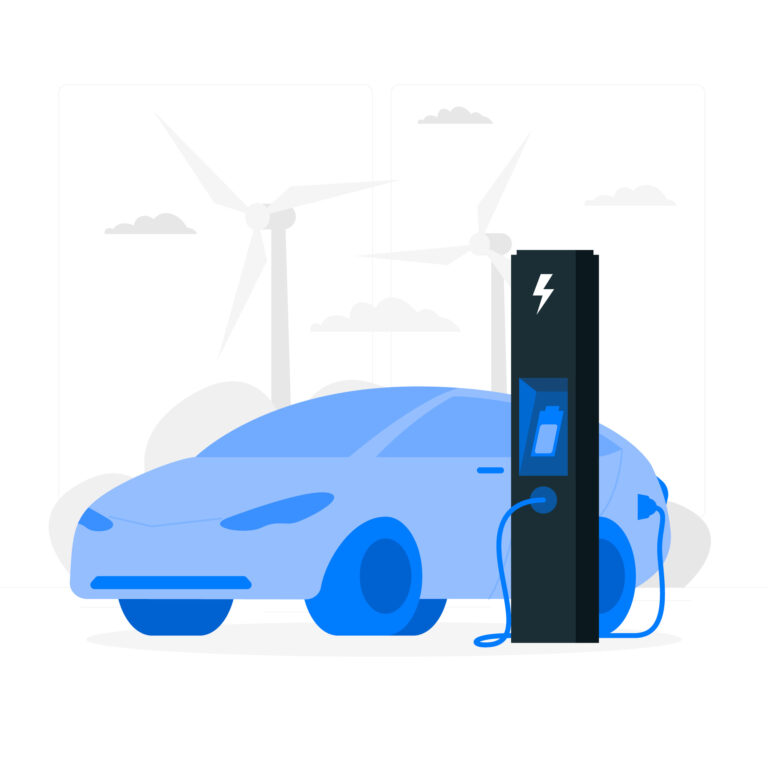
Over the beyond few years, the demand for electric powered cars in India has been step by step growing. With rising concerns approximately climate exchange, air pollution, and gasoline expenses, increasingly more human beings are searching out alternatives to conventional gasoline-powered cars. In addition, the Indian government has been actively promoting the usage of electric motors thru diverse initiatives, such as tax incentives, subsidies, and the status quo of charging infrastructure.
Benefits of Owning an Electric Car
Owning an electric automobile in India comes with numerous advantages, both for the environment and in your pockets. Firstly, electric motors are a great deal cleaner than fuel-powered vehicles, as they produce 0 emissions at the tailpipe. This means that they do not make contributions to local air pollutants, that can have a extreme effect on public health, in particular in densely populated towns. In addition, electric cars are greater energy-green than gas cars, because of this that they could prevent quite a few cash on gasoline charges ultimately. Electric automobiles also are quieter and smoother to force than gas motors, as they’ve fewer transferring components and greater immediately torque delivery. They are also greater dependable, as they require less renovation than fuel automobiles, without a oil adjustments or exhaust structures to fear about. Finally, proudly owning an electric car can also make a declaration approximately your dedication to sustainability and your contribution to the fight towards climate exchange. As the sector transitions toward renewable power, proudly owning an electric car is a step closer to a extra sustainable destiny.
Best Electric Cars in India
- Tata Altroz EV
- Renault Kiger EV
- Hyundai Ioniq 5
- MG ZS EV
- Volvo XC 40 recharge
- Hyundai Kona Electric
Tata Altroz EV
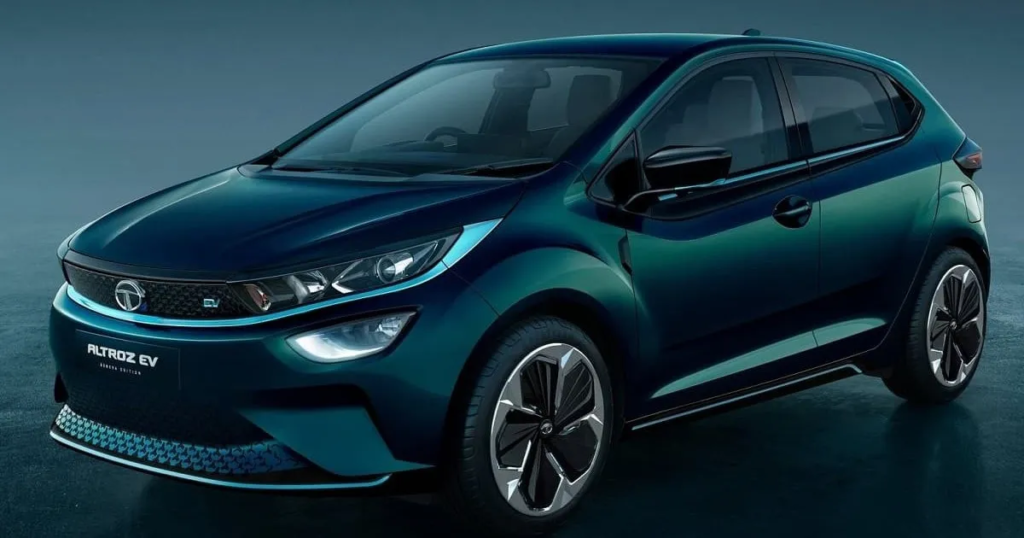
The Tata Altroz EV is an electric-powered automobile from the Indian automaker Tata Motors. It was released in June 2022 and is based on the popular Tata Altroz hatchback. The Altroz EV is predicted to function with a 30.2 kWh battery percent and an electric motor that produces around 129 horsepower and 245 Nm of torque. It is also expected to have a number of up to 312 kilometers on an unmarried charge, that’s greater than enough for most daily commutes.
The Tata Altroz EV is designed to be a sensible and green electric automobile for the Indian marketplace. It is expected to have characteristic speedy charging competencies, which means that it may be charged as much as 80% in only 60 minutes using a fast charger. It is likewise predicted to have regenerative braking, which helps to recharge the battery whilst driving and enhance the auto’s normal performance.
Renault Kiger EV
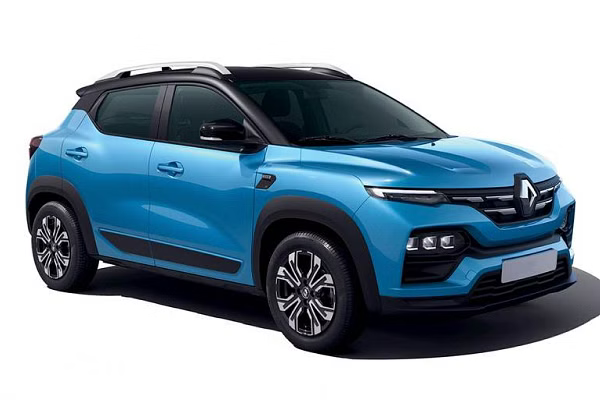
The Renault Kiger EV is an upcoming electric version of the popular subcompact SUV, its set to release on Expected Launch Date is November 2023. The Renault Kiger. While specific details about the battery, electric motor, and range are not yet officially disclosed as of my knowledge cutoff in September 2021, it is anticipated that Renault is working on an electric variant to cater to the growing demand for electric vehicles in India.
As an electric SUV, the Renault Kiger EV is expected to feature a battery-powered electric motor that provides a smooth and quiet driving experience. The electric motor is likely to deliver instant torque, ensuring quick acceleration and responsive performance on the road.
The range of the Renault Kiger EV will depend on the battery capacity and efficiency, but electric vehicles in this segment typically offer ranges that can vary between 150 to 300 kilometers or more on a single charge. Longer-range versions may be available to suit different customer preferences.
Renault is known for its focus on safety and technology, so it is expected that the Kiger EV will come equipped with modern safety features and innovative technology, such as advanced driver-assistance systems and connectivity options.
While we await more precise details regarding the launch date, battery specifications, electric motor power, and range of the Renault Kiger EV, it is an exciting addition to Renault’s electric vehicle lineup. It aims to provide eco-conscious drivers with a stylish and efficient electric SUV option in the Indian market.
Hyundai Ioniq 5
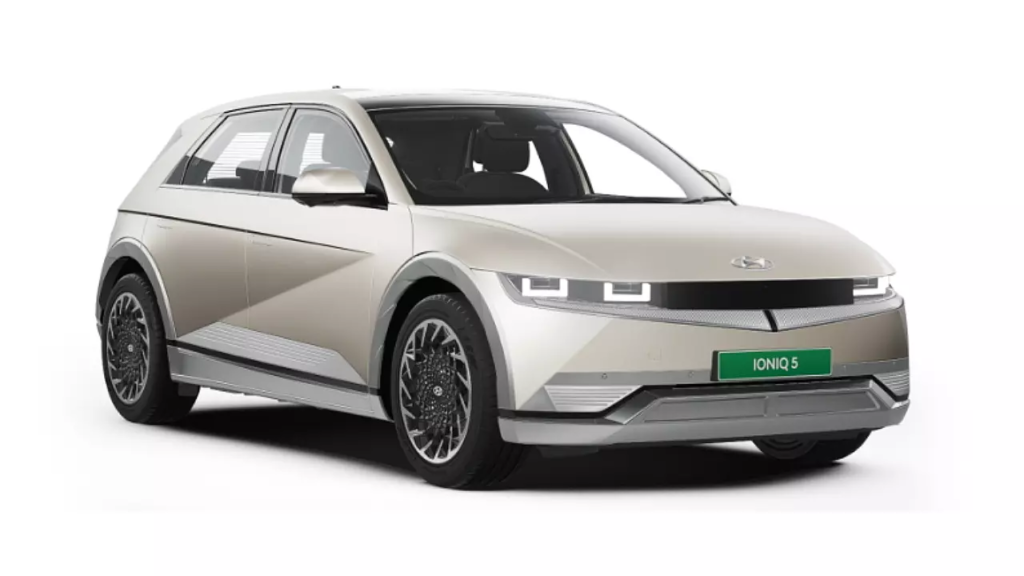
The Hyundai Ioniq 5 is an all-electric compact SUV from Hyundai, representing the brand’s entry into the electric vehicle market. The Ioniq 5 was first unveiled in February 2021 and has been generating significant buzz among EV enthusiasts and potential buyers.
The Ioniq 5 is built on Hyundai’s Electric-Global Modular Platform (E-GMP), which is specifically designed for electric vehicles, allowing for efficient space utilization and enhanced performance. It offers a futuristic and aerodynamic design with clean lines and a distinctively modern appearance.
Regarding the battery options, the Ioniq 5 is expected to offer a range of battery sizes to suit different needs. The available options are likely to include a standard-range battery and a long-range battery. Battery Capacity 72.6kWh and Range 631 km/charge.
In terms of electric motor configurations, the Ioniq 5 is likely to offer both rear-wheel drive (RWD) and all-wheel drive (AWD) variants, catering to different driving preferences. The electric motors are expected to deliver impressive power and acceleration, allowing for a thrilling and responsive driving experience.
Hyundai has placed a strong emphasis on range for the Ioniq 5. With the utilization of advanced battery technology and efficient drivetrain systems, the Ioniq 5 is anticipated to offer a substantial driving range on a single charge. While specific range figures may vary depending on the chosen battery option and driving conditions, the Ioniq 5 is expected to deliver competitive ranges that can comfortably accommodate most daily commutes.
As for the launch date, the Hyundai Ioniq 5 was unveiled in 2021, and it has gradually been made available in different markets worldwide. It is essential to refer to Hyundai’s official announcements and regional availability for specific launch dates in your area.
Overall, the Hyundai Ioniq 5 represents a significant step forward in Hyundai’s electric vehicle lineup, offering a combination of advanced technology, striking design, and impressive performance. It aims to cater to consumers seeking a versatile and efficient electric SUV option with a focus on range and cutting-edge features.
MG ZS EV

The MG ZS EV is an all-electric compact SUV from the British automotive brand MG (Morris Garages). It launched in India on March 7 in India, making it one of the early entrants in the Indian electric vehicle market.
The MG ZS EV is equipped with a lithium-ion battery pack, which powers an electric motor to deliver smooth and instant torque. This electric powertrain provides a quiet and emission-free driving experience. While the specific battery capacity is 50.3 kWh Hi-Tech Battery, the MG ZS EV is known to offer a range to 461 km* and produce a max horse power 176.75 ps.
Speaking of the range, the MG ZS EV is designed to provide a decent driving range on a single charge. It offers a range that is typically around 461 kilometers (WLTP cycle). This range is suitable for most daily commutes and weekend getaways, providing confidence to drivers without frequent charging requirements.
The MG ZS EV also give safety features 3 Point Seatbelt For All Passengers, Electric Parking Brake with Auto Hold, Hill Descent Control, ABS + EBD + Brake Assist, Heated ORVM, Hill Start Assist
In terms of performance, the MG ZS EV delivers responsive acceleration, thanks to its electric motor. It offers a smooth and enjoyable driving experience, making it suitable for both city driving and longer journeys.
The MG ZS EV comes with modern features and technologies. It includes a touchscreen infotainment system with smartphone integration, advanced safety features, and convenience options to enhance the overall driving experience.
Since its launch, the MG ZS EV has been well-received in the Indian market, attracting eco-conscious customers looking for an affordable and practical electric SUV option.
Volvo XC 40 recharge
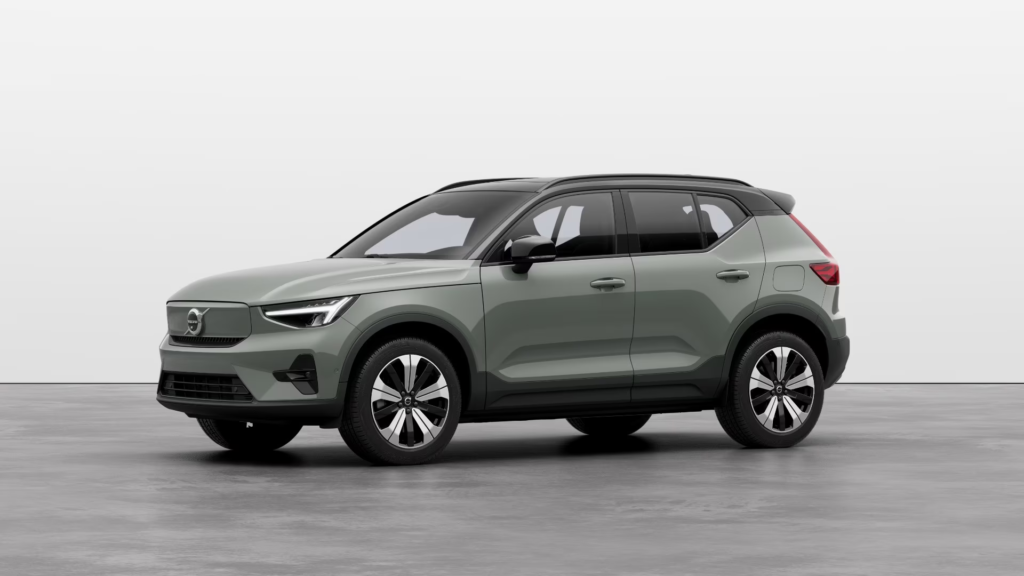
The Volvo XC40 Recharge is the all-electric version of Volvo’s popular compact luxury SUV, the XC40. It was officially launched in Indian market in 20 July 2022, marking Volvo’s entry into the electric vehicle segment.
The XC40 Recharge is powered by a large lithium-ion battery pack that offers a substantial capacity for extended driving range. With the specific battery capacity not mentioned in my training data, it is known that the XC40 Recharge provides an impressive electric driving range on a single charge.
The electric motor of the XC40 Recharge delivers powerful performance, ensuring quick acceleration and responsive driving dynamics. It offers instant torque, providing a smooth and effortless driving experience.
Volvo has incorporated advanced charging capabilities into the XC40 Recharge. It supports fast charging, enabling the battery to be charged to a significant percentage in a short period. This feature allows for convenient long-distance travel and reduces the time spent on charging.
The XC40 Recharge showcases Volvo’s commitment to safety, incorporating a range of advanced safety features and driver-assistance technologies. It includes features such as collision avoidance, lane-keeping assist, and adaptive cruise control, offering a high level of protection and enhancing overall driving confidence.
In terms of design, the XC40 Recharge retains the distinctive and stylish appearance of the regular XC40, with additional EV-specific elements to highlight its electric identity. The interior of the XC40 Recharge offers a comfortable and luxurious cabin, along with Volvo’s signature Scandinavian design principles.
As an electric vehicle, the XC40 Recharge contributes to reduced carbon emissions and environmental impact. It aligns with Volvo’s commitment to sustainability and its goal of becoming a fully electric car company by 2030.
Please note that specific details about the battery capacity, electric motor power, and range of the Volvo XC40 Recharge may vary based on regional specifications and updates. For the latest and most accurate information, it is recommended to refer to official sources and Volvo’s official announcements.
Hyundai Kona Electric

The Hyundai Kona Electric is a compact all-electric SUV it expected to launch in March 2024 and has gained popularity as an affordable and practical electric vehicle option.
The Kona Electric is powered by a high-capacity lithium-ion battery pack, which varies based on the version and model year. The battery capacity typically ranges between 48.4kWh and 65.4kWh, offering a suitable balance between range and affordability.
The electric motor of the Kona Electric provides impressive performance, delivering instant torque and smooth acceleration. It offers a responsive and enjoyable driving experience, making it suitable for both city driving and longer journeys.
One of the key advantages of the Kona Electric is its driving range. The range varies based on the battery capacity and model year, The second-generation Kona Electric gets a WLTP-claimed range of up to 490km. This range provides the flexibility for most daily commutes and allows for longer trips with fewer charging stops.
Hyundai has equipped the Kona Electric with advanced charging capabilities. It supports both AC and DC fast charging, allowing for convenient charging at home or on the go. With a DC fast charger, the Kona Electric can be charged up to 80% in a relatively short time, depending on the charging infrastructure available.
The Kona Electric features a modern and stylish design, both on the exterior and interior. It offers a comfortable and well-equipped cabin with a range of convenience and safety features. Notable features may include a touchscreen infotainment system, smartphone integration, advanced driver-assistance systems, and more.
The Hyundai Kona Electric has been recognized for its efficiency, practicality, and affordability in the electric vehicle market. It offers an attractive option for customers looking to transition to electric mobility without compromising on range or performance.
Model | Price | Range | Battery Capacity | Top Speed |
Tata Altroz EV | Rs.12.00-14.00 Lakhs* | 312KM/Full Charge | 30.2kWh | 120 kmph |
Renault Kiger EV | Estimated Starting Price ₹6.00 Lakh* | Not know | Not know | Not know |
Hyundai Ioniq 5 | Rs. 45.95 Lakhs* | 631KM/Full Charge | 72.6 kWh | 185 kmph |
MG ZS EV | 23.38 – 27.40 Lakhs* | 461KM/Full Charge | 50.3 kWh | 140 kmph |
Volvo XC 40 recharge | Rs 56.90 Lakhs* | 418KM/Full Charge | 78 kWh | 180 kmph |
Hyundai Kona Electric | Rs 23.84 – 24.03 Lakhs* | 484KM/Full Charge | 39.2 kWh | 155 kmph |
In conclusion, electric cars are rapidly gaining popularity in India. With increasing concerns about air pollution and a growing focus on sustainable transportation, more and more Indians are embracing the idea of electric vehicles. The government’s push for electrification, coupled with incentives and favorable policies, has created a conducive environment for the adoption of electric cars. The expanding charging infrastructure network across the country has further eased concerns about range anxiety and provided convenience to electric car owners.
Moreover, the availability of a wider range of electric car models from various manufacturers has given consumers more choices, catering to different budgets and preferences. As the technology continues to advance and battery costs decrease, electric cars are becoming more affordable and practical for everyday use.
The positive response from consumers, coupled with the commitment of automakers to introduce new electric models, indicates a promising future for electric cars in India.
With their environmental benefits, reduced operating costs, and improved driving experiences, electric cars are poised to play a significant role in shaping the future of transportation in India, contributing to a greener and more sustainable future.


